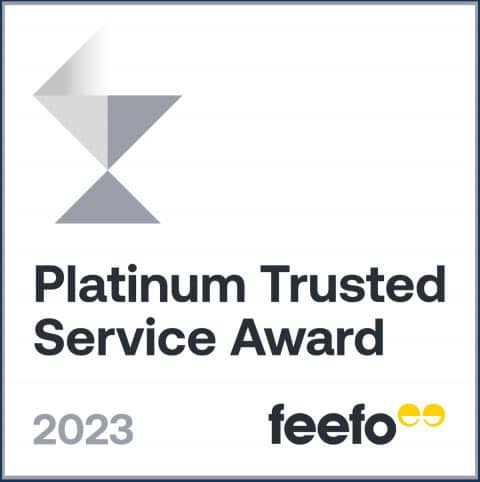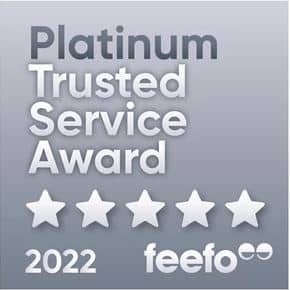A hire purchase is a flexible and cash flow neutral finance solution for business looking to eventually own cars, equipment, or long-term assets. Repayments can be tailored to your business cycle. You can reduce repayments using a balloon payment (residual value) payment, due at the end of the loan term. A hire purchase doesn’t require a deposit, and all repayments are on the books as operating expenses. As a business loan, you can also finance maintenance and servicing as part of the hire purchase agreement, with an amount more than 100% of your asset’s value.
Accounting and tax benefits of hire purchases
With all hire purchases, ownership of the equipment or car rests with the lender until the end of the loan term. This means you are effectively hiring or renting the asset which means repayments are classified as a business operating expense. Your lender may claim GST, depreciation, and interest paid on the loan and pass it on as savings to you. This may suit businesses that require off-balance sheet accounting.
Why compare business loans with Savvy?
You can speak with one of our specialist commercial brokers who can walk you through a range of loans to best suit your companies needs.
You can compare business loan offers, through a range of trusted lenders, maximising your chances of a great rate.
You can fill out our simple online form to generate a free business finance quote within minutes. You can also come back to it at any time.
Chattel mortgage vs hire purchase
A chattel mortgage and hire purchase work the same in principle but are different “on paper.” With a chattel mortgage, your business records the asset on its books immediately. In a hire purchase, the bank or lender retains ownership until the loan is fully repaid. This impacts how the asset is accounted for versus using operating capital. Your accountant can help determine which option is better for your business.
Is a hire purchase eligible for an instant asset write-off?
According to the Australian Taxation Office, a hire purchase is eligible for the instant asset write-off, check the ATO website to see what the current limit is. Though a hire purchase arrangement does not add an asset on to your books immediately, the method of acquiring the asset (chattel mortgage, buying outright, or hire purchase) and whether it is used for business purpose will determine whether the purchase qualifies for the tax write-off.
What type of assets are considered for hire purchases?
Almost any type of performing or non-performing asset is eligible for a hire purchase. “Performance” refers to whether the asset directly or indirectly contributes to the business’ gross profit. A coffee shop may need an espresso machine and chairs. The espresso machine is a performing asset as it makes the coffee for sale. A chair is a non-performing asset, as it’s there for customer comfort and does not generate revenue. As long as the asset is used primarily for business use, it is eligible for hire purchase finance.
What companies are eligible for a hire purchase?
Any business with an active ABN that intends to use the equipment or vehicle for more than 50% business use may apply for a hire purchase. This includes partnerships, sole traders, and other incorporated entities. If a sole trader wishes to buy a car using a hire purchase, they must demonstrate the car will be used for business purposes more than half the time. If it will be used for personal use most of the time, the best way to finance a vehicle would be to apply for a commercial car loan.
Tips for saving more on hire purchases?
-
Figure out what your business needs
-
Is your accounting method suitable?
-
Set your repayments
-
Apply with a broker
-
Determine the tax benefits
Car Loan Repayment Calculator
Your estimated repayments
$98.62
| Total interest | Total amount |
| $1233.43 | $5,143.99 |
WHAT OUR CUSTOMERS SAY ABOUT THEIR FINANCE EXPERIENCE
WHAT OUR CUSTOMERS SAY ABOUT THEIR FINANCE EXPERIENCE


Savvy is rated 4.9 for customer satisfaction by 6142 customers.
Hire purchase frequently asked questions
Business gains many tax breaks and other incentives. GST paid on the asset as well as interest and depreciation is claimable; either are passed on by the lender or claimed by your business. You are also eligible for the instant tax write-off.
Yes – if your business wishes to purchase the assets outright from the bank or lender, you do have an option to pay out the loan. This may suit a business that wants to transfer their equipment or car onto their books as assets. In some hire purchases, you may have options to buy the asset outright at various times during the loan term. This can save money in interest repayments, although fees and charges could apply. Always talk to your accountant before making any decision.
A balloon payment, or residual value payment, is a part of the loan set aside for payment at the end of the loan term. This has the effect of reducing regular repayments. When the loan term is up, you can pay out the balloon, refinance the balloon, or in some cases, trade in your equipment or car if it meets certain conditions.
This means your business will not have to dip into savings or cash reserves to immediately fund the hire purchase. You can borrow 100% of the asset’s value, and even cover expenses such as registration, insurance, training, installation, and maintenance.


